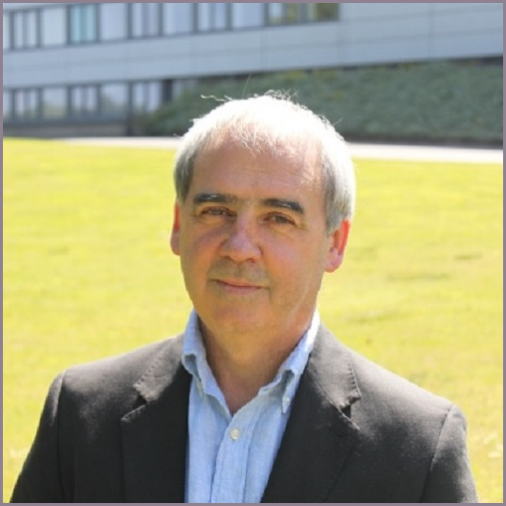All of society has been impacted by coronavirus but those most affected are vulnerable older people and particularly those requiring care, either at home or in a care home setting. Providing protection and prevention has been a complex, delicate and extended task, but it is only one side of the equation. What have we learned during the coronavirus response so far about best practice in care? What are the challenges in delivering quality of life - as well as sustaining life - for older people during coronavirus and in the ‘new normal’?
This webinar will discuss both the experience of caring for older people during coronavirus to date and the lessons to be drawn from that experience for future ‘new normal’. While the mammoth task of protecting lives offers learning for the next phase, we also face quality of life challenges. Complex issues including bereavement, isolation, mental health and personal agency become more acute in a locked down world
Key Points

Professor of Economics
University of Stirling

Director of Evidence & Influencing - Dementia Programme
Life Changes Trust

Deputy CEO
Scottish Care

Emeritus Professor of Management
Queen Margaret University
10:00 Welcome from Chair
Richard Kerley, Professor of Management, Queen Margaret University and SRK Consultancy
10:05 Structural challenges faced by the care system through coronavirus and into ‘new normal’
Professor David Bell, Professor of Economics, University of Stirling
10:20 COVID-19 Learning from a Dementia perspective
Arlene Crockett, Director of Evidence & Influencing - Dementia Programme, Life Changes Trust
10:35 Reflecting experience, best practice learning and innovation insight from paid carers and care organisations
Karen Hedge, National Director, Scottish Care
10:50-11:00 Discussion and Q&A
Richard Kerley, Professor of Management, Queen Margaret University and SRK Consultancy

David Bell (Professor)
Professor of Economics
University of Stirling
David Bell was educated at Dornoch Academy, the University of Aberdeen and the London School of Economics. He was awarded a PhD at the University of Strathclyde in 1984 and has worked at the Universities of St Andrews, Strathclyde, Warwick and Glasgow. He has been Professor of Economics at the University of Stirling since 1990 specialising in labour economics and fiscal federalism. He was adviser to the Finance Committee of the Scottish Parliament from 2007 to 2013 and has provided advice to the ILO, OECD, the Scottish, Westminster and Irish Governments. In 2015, he was specialist adviser to the House of Lords Economic Affairs Committee for its investigation into the Financing of Devolution. He has appeared numerous times in the Scottish Parliament as a witness to the Economy Committee, the Health and Sport Committee, the Welfare Committee, the Devolution Committee, and the Finance Committee. He has also appeared several times as a witness at the House of Commons Scottish Affairs Committee. He is a fellow of the Royal Society of Edinburgh, the IZA, Bonn and an Honorary Fellow of the Institute and Faculty of Actuaries. He is a member of the Centre on Constitutional Change and the Centre for Population Change and a special adviser to the David Hume Institute. He is also Principal Investigator of the Healthy AGeing In Scotland (HAGIS) survey, a longitudinal survey of older people in Scotland, which is funded by the US National Institute of Aging and the Nuffield Foundation. He has extensive media experience in Scotland and the UK as a whole.
He is regularly consulted by the media for expert views in relation to: youth unemployment, constitutional change, education policy and long-term care. Broadcast media appearances include BBC Radio 4, BBC Radio 5 Live, BBC Scotland News, BBC Scotland Newsnight, STV News and Channel 4. He is also a regular contributor to The Scotsman newspaper and has appeared in a number of other print publications. Other Positions and Honours: 1998-2000 Member of the Care Development Group, Scottish Government 2003-2004 Member of the Range and Capacity Review Group 2003-2007 Member of the ESRC Training and Development Board 2004-2006 Member of the Joseph Rowntree Foundation Advisory Group on the Funding of Long-Term Care 2002- Fellow of the Royal Society of Edinburgh 2007-2008 Member of Lord Sutherland's Independent Review into free personal & nursing care in Scotland 2007 - Budget Adviser, Finance Committee, Scottish Parliament 2007- Fellow of the World Demographic Association 2008- Research Associate, IZA, Bonn 2008-2010 Member of Commission on Scottish Devolution Expert Group 2003-2007 Member of ESRC Training and Development Board 2011- Member of Scottish Doctoral Training Centre Board 2011- Director of Scottish Institute for Research in Economics (SIRE) Work and Well- being Programme 2011- Member of CemMap Advisory Committee (Centre for Micro-econometric Methods and Practice, Institute for Fiscal Studies) 2012 ESRC Research Fellow on Constitutional Change Awards RATE (Recognising Achievement in Teaching Excellence) awards 2012, ‘For Excellence in Postgraduate Education’ and ‘Excellence in Teaching’, in the Stirling Management School.

Arlene Crockett
Director of Evidence & Influencing - Dementia Programme
Life Changes Trust
Arlene is Director of Evidence and Influencing for the Dementia Programme, with the Life Changes Trust. She joined the Trust in January 2018, having worked previously for Alzheimer Scotland for 16 years. In 2017 she achieved an MBA at Glasgow Caledonian University, completing her dissertation on Employee Engagement & the Impact of Social Care Commissioning in the Voluntary Sector. She also has experience in operations, partnership working and project management.

Karen Hedge
Deputy CEO
Scottish Care
Karen’s career in social care began as a paid carer and whilst hugely rewarding, she quickly became motivated by the pressures of the sector. A champion for participation and co-production, she believes in evidencing impact through outcomes for people.
Integration has been a theme of her career, having implemented the single shared assessment in an inner London Borough, and been one of the first people in the UK to have a joint funded NHS and Local Authority post, commissioning in Wiltshire. As Director of Finance, Governance and Compliance at the Prince of Wales Foundation in Washington DC, she held stewardship for a fundraising and grant-making non-profit, reporting directly to Clarence House.
As Deputy CEO of Scottish Care, she continues to shape the future of social care. Her portfolio includes reform, integration, commissioning and procurement and nursing in care. She particularly values the Scottish Care Awards where she learns of the successes of the sector and from those who effect change.
When she is not working, the ‘Ayrshire lass’ can be found on the beach with her family, letting the good sea breeze blow away the cobwebs. Her previous voluntary roles include Trustee for Milestones Trust, and Chair of the NCT Bath branch. She is currently on the committee of the Unfunded List, an international not-for-profit which supports unsuccessful fundraisers to meet their next bid, and is a Board member of Learning Network West, supporting social work education.

Richard Kerley
Emeritus Professor of Management
Queen Margaret University
Professor Richard Kerley is Professor of Management at QMU with a specific interest in public service management. He was previously at the University of Edinburgh and the Scottish Local Authorities Management Centre, University of Strathclyde . He has also been a visiting scholar at Yale University. Before entering academic life, Richard worked in advertising, hospitality and in prison education. He also worked for four different councils, in adult education and then latterly in staff and management development.
He is currently also a Non-Executive Director with Mainstreet Consulting and a Trustee of the Centre for Scottish Public Policy 2021. He has been on the board of various companies, charities, and arts organisations.
Richard is the author of various books, research papers, academic journals, and numerous articles in the quality print media. His most recent publications include an edited book on International Local Government, and he is currently working on a taxonomy of international local government.
Richard chaired the Working Party on Renewing Local Democracy; the report of which was published in July 2000, and which was legislated for in June 2004 as the Local Governance Act. He has carried out research projects supported by the Joseph Rowntree Foundation, Scottish Consumer Council, Alcohol Scotland, The Accounts Commission Scotland, Tayside, Edinburgh and Fife Councils, the Association of MBAs, and the Scottish Government. He has been engaged in consultancy projects by government; local governments; government agencies; voluntary organisations and international education providers.
Online
Fees
How to book
You can book to attend, or order the video only, in 3 ways:
Select book now on the right hand side of this page, fill in the form on that page and click the 'send booking' button
Call 0131 556 1500
Email mail@mackayhannah.com
Webinar fees
Delegate fee (includes video recording) – £49 +VAT
Video recording (should you wish to purchase a video recording without registering to attend the webinar) – £40 +VAT
Group discount – organisations booking 3 or more delegates will receive every third delegate place free of charge (please complete further forms if necessary)
Payment
We do not currently accept payments online and will send you an invoice.
You have the option of paying by BACS or card.
BACS details will be included on the invoice.
If you wish to pay by card, please tick the appropriate box on the booking form and a member of our staff will contact you by telephone to take the payment.
Alternatively you may call 0131 556 1500.
Book delegate places or purchase video recording.

